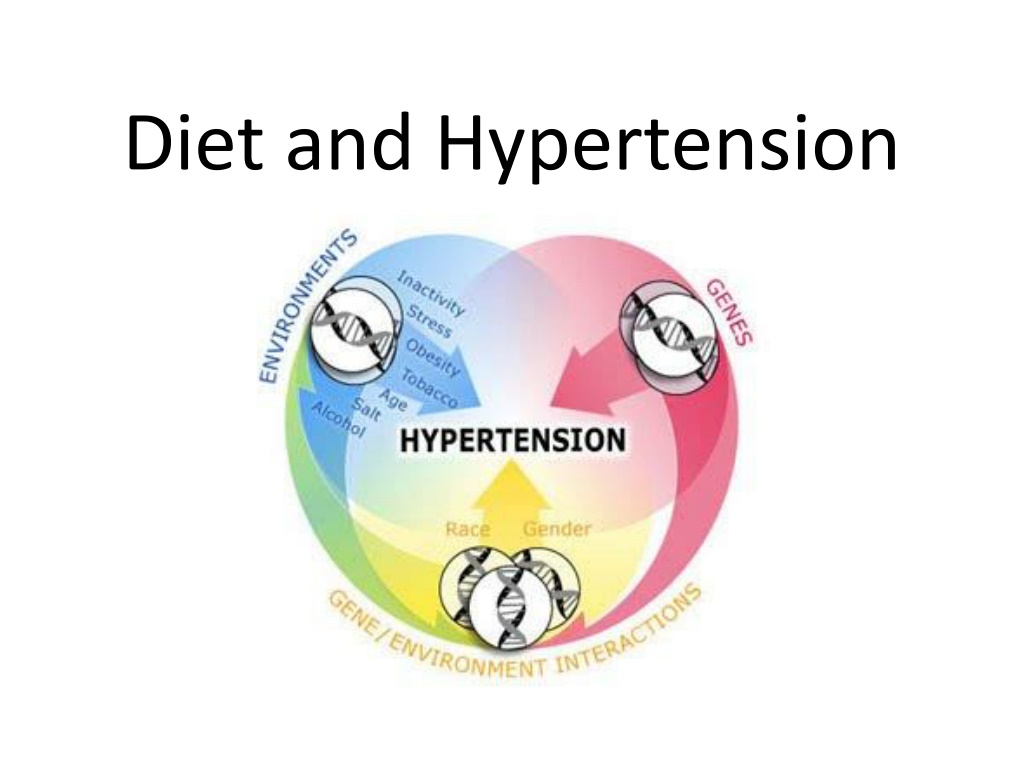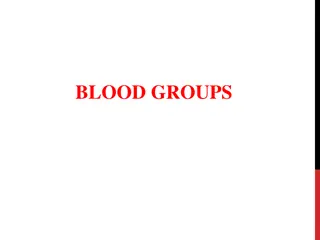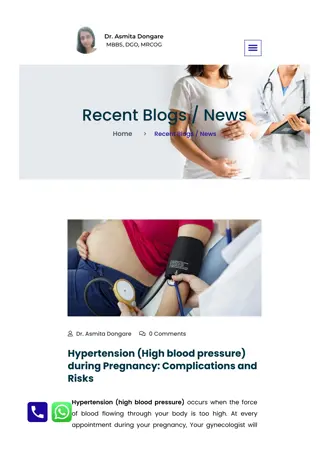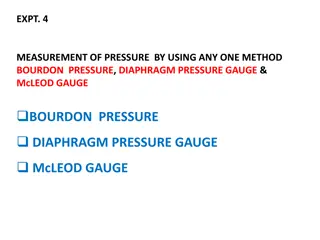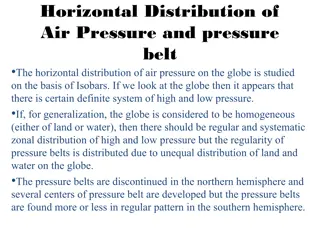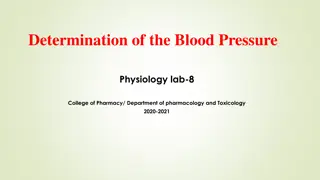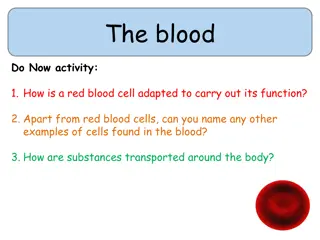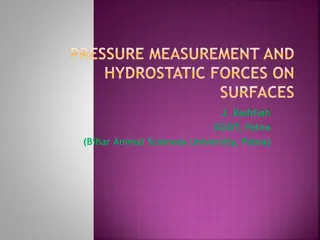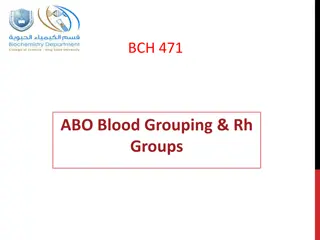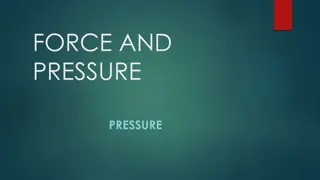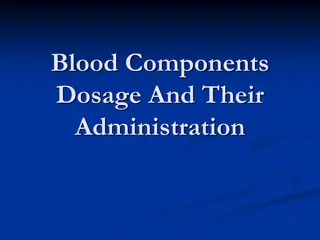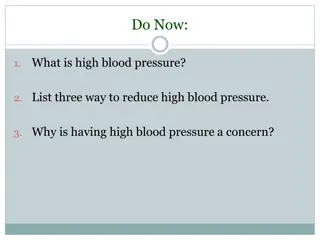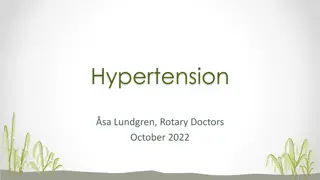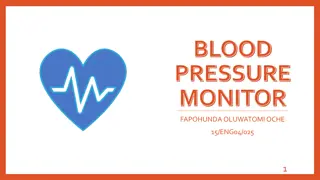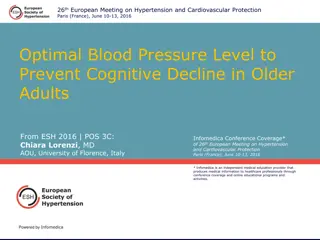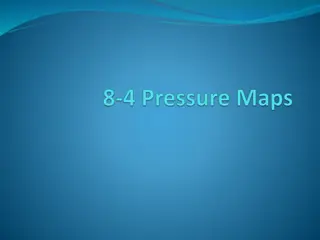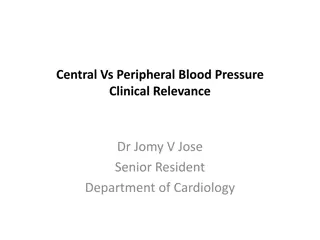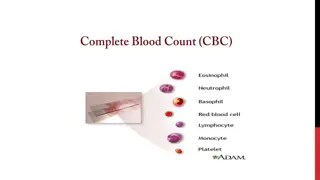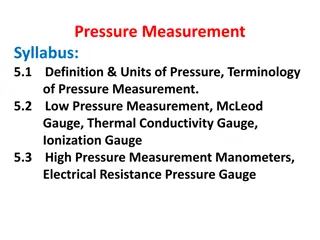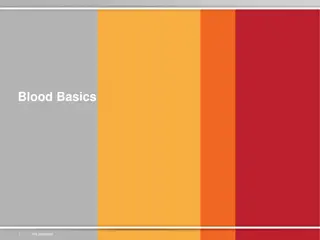Understanding the Impact of High Blood Pressure on the Body
High blood pressure, or hypertension, is a common condition that can lead to serious health complications such as heart disease, stroke, and kidney damage. This article explores the effects of high blood pressure on various organs in the body, including the brain, heart, kidneys, eyes, and arteries. It emphasizes the importance of blood pressure management to prevent potential health risks.
Download Presentation

Please find below an Image/Link to download the presentation.
The content on the website is provided AS IS for your information and personal use only. It may not be sold, licensed, or shared on other websites without obtaining consent from the author. Download presentation by click this link. If you encounter any issues during the download, it is possible that the publisher has removed the file from their server.
E N D
Presentation Transcript
What is Blood Pressure? The force of blood against the wall of the arteries. Systolic- as the heart beats Diastolic - as the heart relaxes Written as systolic over diastolic.
High Blood Pressure A consistent blood pressure of 140/90 mm Hg or higher is considered high blood pressure. It increases the risk for heart disease, kidney disease, and stroke. 1 out of 4 Americans have High BP. Has no warning signs or symptoms.
Why is High Blood Pressure Important? Makes the Heart work too hard. Makes the walls of arteries hard. Increases risk for heart disease and stroke. Can cause heart failure, kidney disease, and blindness.
The Brain High blood pressure is the most important risk factor for stroke. Can cause a break in a weakened blood vessel which then bleeds in the brain.
The Heart High Blood Pressure is a major risk factor for heart attack. Is the number one risk factor for Congestive Heart Failure.
The Kidneys Kidneys act as filters to rid the body of wastes. High blood pressure can narrow and thicken the blood vessels. Waste builds up in the blood, can result in kidney damage.
The Eyes Can eventually cause blood vessels to break and bleed in the eye. Can result in blurred vision or even blindness.
The Arteries Causes arteries to harden. This in turn causes the kidneys and heart to work harder. Contributes to a number of problems.
Risk Factors for High Blood Pressure Age Race Family history Obesity Inactivity Tobacco use Sodium intake Alcohol intake
Risk Factors for High Blood Pressure Poor diet High cholesterol Diabetes Kidney disease Insufficient sleep Sleep apnea Excessive working: > 40hrs/week
High Blood Pressure Detection Measured using a sphygmomanometer. 2 or more readings of 140/90mm Hg or higher taken on more than one occasion.
Tips for Ensuring Accurate BP Readings Don t drink coffee or smoke cigarettes for 30 minutes before. Before test sit for five minutes with back supported and feet flat on the ground. Test your arm on a table even with your heart. Wear short sleeves so your arm is exposed.
Tips for having blood pressure taken. Go to the bathroom before test. A full bladder can affect BP readings. Get 2 readings and average the two of them. Ask the doctor or nurse to tell you the result in numbers and make a note of it.
Calculate Your Risk American Heart Association High Blood Pressure Risk Calculator
Preventing Hypertension Adopt a healthy lifestyle by: Following a healthy eating pattern. Maintaining a healthy weight. Being Physically Active. Limiting Alcohol. Quitting Smoking.
DASH diet Dietary Approaches to Stop Hypertension. Increase of 1 daily serving of veggies. Increase of 1-2 servings of fruit. Inclusion of 4-5 servings of nuts, seeds, and beans.
Tips for Reducing Sodium Buy fresh, plain frozen or canned no added salt veggies. Use fresh poultry, lean meat, and fish. Use herbs, spices, and salt-free seasonings at the table and while cooking. Choose convenience foods low in salt. Rinse canned foods to reduce sodium.
Maintain Healthy Weight Blood pressure rises as weight rises. Obesity is also a risk factor for heart disease. Even a few pounds of weight loss can reduce blood pressure.
Be Physically Active Weight loss/healthy weight maintenance. Lowers blood pressure. 30 minutes daily of moderate level activity. Join a family oriented gym or activity. Use stairs instead of the elevator. Park your car further away and walk. Start a walking club. Home fitness videos and web-streams.
Limit Alcohol Intake Alcohol raises blood pressure and can harm liver, brain, and heart. What counts as a drink? 12 oz beer 5 oz of wine 1.5 oz of 80 proof whiskey Drink in moderation: For men: no more than 2 drinks per day For women: no more than one drink per day
Quit Smoking Injures blood vessel walls Speeds up process of hardening of the arteries. Damages lungs Smoking cessation classes/resources (CDC.gov)
Conclusion Hypertension is preventable and reversible. If left uncontrolled, will lead to chronic disease. Resources: www.nhlbi.nih.gov/ www.cdc.gov www.heart.org/HEARTORG/ www.usda.gov
